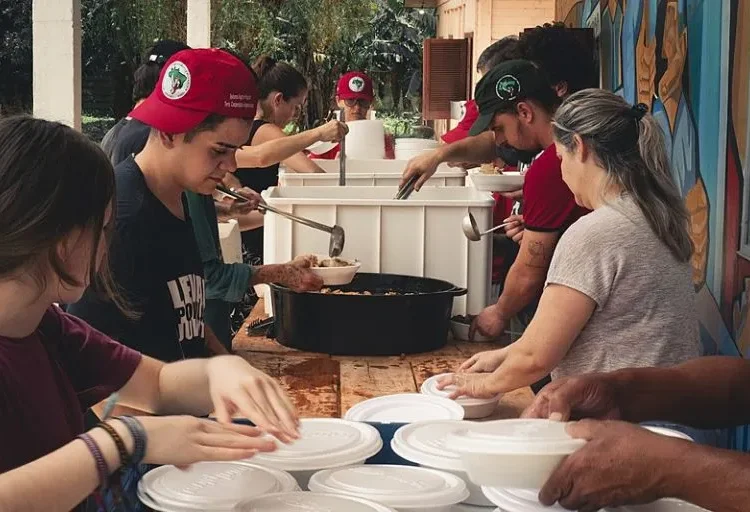On Monday (17), Brazil’s Landless Rural Workers’ Movement (MST, in Portuguese) launched a solidarity campaign focused on children in the state of Rio Grande do Sul.
The aim is to involve the movement's children in the campaign to donate school materials, clothes, personal hygiene items, toys, literary fiction books and other products to those affected by the floods in southern Brazil.
About 10,000 children and teenagers are currently in shelters, according to the state government. On June 14, Rio Grande do Sul’s Civil Defense informed that 176 people died and 39 are still missing so far due to the floods.
The MST estimates that 420 settled families were affected by the flooding. They are from the Integração Gaúcha (IRGA, in Portuguese) and Nonoaiense settlements (IPZ, in Portuguese), in the town of Eldorado do Sul; Santa Rita de Cássia and Sino, in Nova Santa Rita; September 19 Settlement, in Guaíba; and Tempo Novo, in Taquari.
“The impact is immeasurable. Houses have been flooded, food production and structures have been lost, as well as tools and machinery have been damaged, and animals have lost their lives. Among the collective social spaces affected is the first nursery school built in the Agrarian Reform area,” the MST said in a statement.
Valter Leite, from the movement's national directorate for education, explains that amid this scenario, the Sem Terrinha (“Little Landless People”, in a rough translation) Solidarity Campaign “is motivated by the actions and messages of the Sem Terrinha children in support of the people of Rio Grande do Sul and, particularly the messages and actions aimed at children amid the recent events.”
“We have solidarity as a value and a human act permanently cultivated by the MST. Its real exercise takes on a formative and humanizing character. We believe that this feeling, this principle – this value and human act – is only possible among people willing to fight for social justice,” says Leite.




